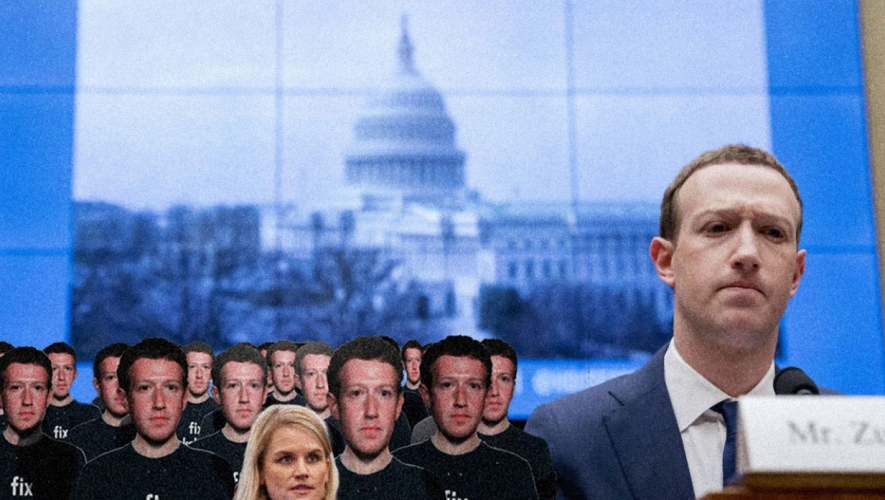If Mark Zuckerberg could have predicted that his infamous philosophy—“move fast, break things”—would have turned into the antithesis of democratic values today, he likely would never have said it. Of course, to move fast and break things was once a widely adopted way of thinking for entrepreneurs who aimed to achieve Zuckerberg’s level of success. However, back then, the phrase was still associated with the innovative process of growing a company.
Today, it is synonymous with the way entrepreneurs are willing to bend the rules for the sake of profit—and Facebook is the pioneer of this attitude. But in the process of moving fast and breaking things, Facebook has been killing American democracy.
As a defense, Zuckerberg insists that Facebook is a platform, not a publisher; a technology company, not a media company. The difference in title seems trivial to most, but it plays a significant role in determining whether Facebook could finally be held liable for its past unethical conduct.
This is what the current debate over reforming Section 230 of the Communications Decency Act is all about. Section 230 protects tech platforms from being treated as “the publisher or speaker of any information provided by another information content provider.” This essentially means that the act protects any online intermediary that hosts and republishes speech from taking responsibility for what users say on their site—a privilege not extended to publishers like newspapers, whose pages are not deemed a public marketplace of views. This is considered the main reason why tech giants like Facebook can do so much harm with their content without any consequences.
The fact remains: while Facebook was growing into the media giant it is today, it was continuously accused of anti-competitive business practices, proliferating hate speech and misinformation, violating user privacy, damaging teenage mental health—and, through it all, profiting handsomely. Above all, the social network drives partisan polarization and election misinformation, shaping the entire sphere of how American democracy operates. At this point, it is clear that the company has long passed the threshold of operating merely as a platform.
How did Facebook get to the point at which it possessed the power to exacerbate humanitarian crises in foreign countries and contribute to the greatest US partisan divide of the century? Thus far, the company has managed to emerge from these accusations unscathed—but after former Facebook product manager Frances Haugen leaked tens of thousands of pages of internal documents to The Wall Street Journal, a daunting revelation emerged: American democracy is crumbling, and Facebook is the catalyst.
Approaching American Authoritarianism
The claim that America is gradually becoming an autocracy is not unfounded. In How Democracies Die, political scientists Daniel Ziblatt and Steven Levitsky posit that democracies don’t just explode in a single, spectacular fashion; they dissolve slowly at the hands of elected leaders who subvert the very democratic processes that brought them to power. This should sound familiar in the age of Trump—the former president is now considered the very model for aspiring autocrats. Sure, democratic erosion may have begun before Trump, but core democratic institutions were subverted to a new degree under his administration.
In light of the “great Trump Scare,” Ziblatt and Levitsky conclude that America is well on its way to developing authoritarian tendencies by abandoning mutual tolerance—the acceptance by competing parties as legitimate rivals—and forbearance—self-restraint in the exercise of power. To illustrate forbearance, consider what American presidents can do under the Constitution—theoretically, they can undercut congressional and judicial oversight to pardon anyone they want, whenever they want. And yet, the health of American democracy requires that our nation’s leaders do not exploit their institutional prerogatives, even if it is legal to do so.
Elsewhere, Facebook clearly became the model of choice for political manipulation, especially in foreign countries with weak institutions, and often authoritarian regimes, where the platform is synonymous with the internet itself. Similar to Trump’s use of Facebook, the platform proved ideal to spread colossal amounts of dis- and misinformation which incited censorship in Cambodia and the Philippines, deadly clashes in Sri Lanka, and genocide in Myanmar.
Election Misinformation
Trump’s refusal to concede the 2020 presidential election was a clear demonstration of his lack of tolerance and forbearance. Trump abandoned tolerance when he refused to accept Joe Biden as a winning rival, and abandoned forbearance when he sent a clear message that he would win by any means necessary, even if it meant denying a peaceful transfer of power that would eventually lead to the insurrection of the US Capitol. Such election misinformation spread like a virus on Facebook, where—as more internal documents now expose—10 percent of all political material were posts alleging election fraud.
These documents reveal two important things—before the election, Facebook knew extremist movements on its site were trying to polarize voters; after the election, employees were actively notifying the company about high amounts of election misinformation on the platform and urging action. In both cases, company executives refused to assume control over the platform’s weaponization.
Political Polarization
Ziblatt and Levitsky stress that while Trump may have accelerated the process of democratic erosion, he did not cause it, and it will persist without him. Instead, the cause is extreme partisan polarization—one that extends beyond mere policy differences into an irreconcilable conflict over the future of American life. It is simply undeniable that Facebook is a tool that deepens it. Facebook’s algorithm limits users’ exposure to news outlets offering differing viewpoints. This creates belief polarization where exposure to exclusively like-minded individuals leads us to embrace a mindset where only those who agree with us are our political equals.
Zuckerberg and other Facebook representatives like Nick Clegg have consistently denied this—but their statements of defense are growing weaker as more former employees expose the motivations and inner workings of Facebook’s algorithms. By their very design, social media algorithms are engineered to maximize engagement, and such posts are usually inflammatory. The company conducts extensive internal research on this polarization problem, but only periodically adjusts its algorithms and level of incendiary content; doing so permanently would cut into its profit drastically. This has always been the problem with Facebook—it mistakenly tries to resolve its issues with AI advancements when the fundamental problem lies with its business model.
Calls for Reform
Two former Facebook employees—Roddy Lindsay, a former data scientist, and Alex Stamos, a former head of security—present solutions. Lindsay and Haugen, the whistleblower, advocate for a narrow change to Section 230, claiming that if legislators rewrote this legal framework so that companies like Facebook would be faced with potential lawsuits for every amplified post, these companies would have no choice but to get rid of algorithmic feeds altogether. This would also force Facebook to readjust its priorities away from purely seeking profit. However, Stamos believes that reforming Section 230 is insufficient; instead, he calls for an immediate change to Facebook’s executive leadership, beginning with Zuckerberg. Doing so would shift the corporate culture into one more conducive to change.
Similar to Stamos, others argue that haphazardly amending the act could backfire and bear a heavier burden on smaller websites. At the end of the day, Facebook and other tech giants are the only companies that would be able to afford the consequences of newly-regulated, elaborate content moderation while sites like Etsy and Tripadvisor could become obsolete. As evidence of this, while Facebook proudly announced that it supported amending Section 230, Tripadvisor has openly expressed its concerns, arguing that creating possible legal liability for critical or negative reviews could strip the site of its integrity in providing users with valuable and truthful reviews.
There are also serious constitutional challenges that come with reforming the act. Ultimately, it is not Section 230 granting tech companies all this leeway in content moderation. It is the First Amendment and the Constitution which limits Congress’s power to require companies to ban constitutionally protected speech. As a result, such arguments call instead for Congress to appoint an investigative commission to order tech giants like Facebook to be completely transparent on how their platforms work. Only then, they argue, can policymakers make an educated decision about regulating online speech.
Despite the now-conventional wisdom that Facebook is, at the very least, “harmful,” the general public still tends to underestimate the company’s political salience. Perhaps the problem is that it is difficult to grasp just how much power a social media platform can possibly wield. But two facts are true: Facebook is essentially irrelevant to Gen Z—a demographic known for its social media savviness—and that Americans’s knowledge of how social media companies are organized remains significantly low. By 2019, only 29 percent of surveyed Americans could correctly name Instagram and Whatsapp as two brands owned by Facebook.
And yet, Mark Zuckerberg is deemed “the most powerful unelected man in America” and “a world leader without any world leader experience.” The latter phrase is attributed to prominent tech journalist Kara Swisher, who aptly observed that Zuckerberg seems to want to build an all-encompassing universe around us; nothing has made that more clear than Facebook’s recent corporate rebranding to Metaverse—a literal digital dimension that users can escape to through virtual reality. Incidentally, VR is an area in which the government has not dipped its regulatory toes into yet.
Even though there is bipartisan consensus to hold Facebook accountable and on a number of proposals to reform Section 230, the fate of American democracy under the thumbs of Silicon Valley can feel grim. However, the climate surrounding Facebook’s injustices feel different this time around. Not only is Congress currently considering four tech reform bills—the first of which would actually strip Section 230 of its liability protections in cases where a platform’s algorithm deliberately recommends harmful content—but there is more talk than ever of the company reaching its end.
But Facebook has resurrected many times before. If the political leaders of our country hope to de-accelerate the erosion of our democracy, they must not only continue paying attention to what the insiders who have come forward have to say, but keep the pressure steady on Facebook and other tech giants.



